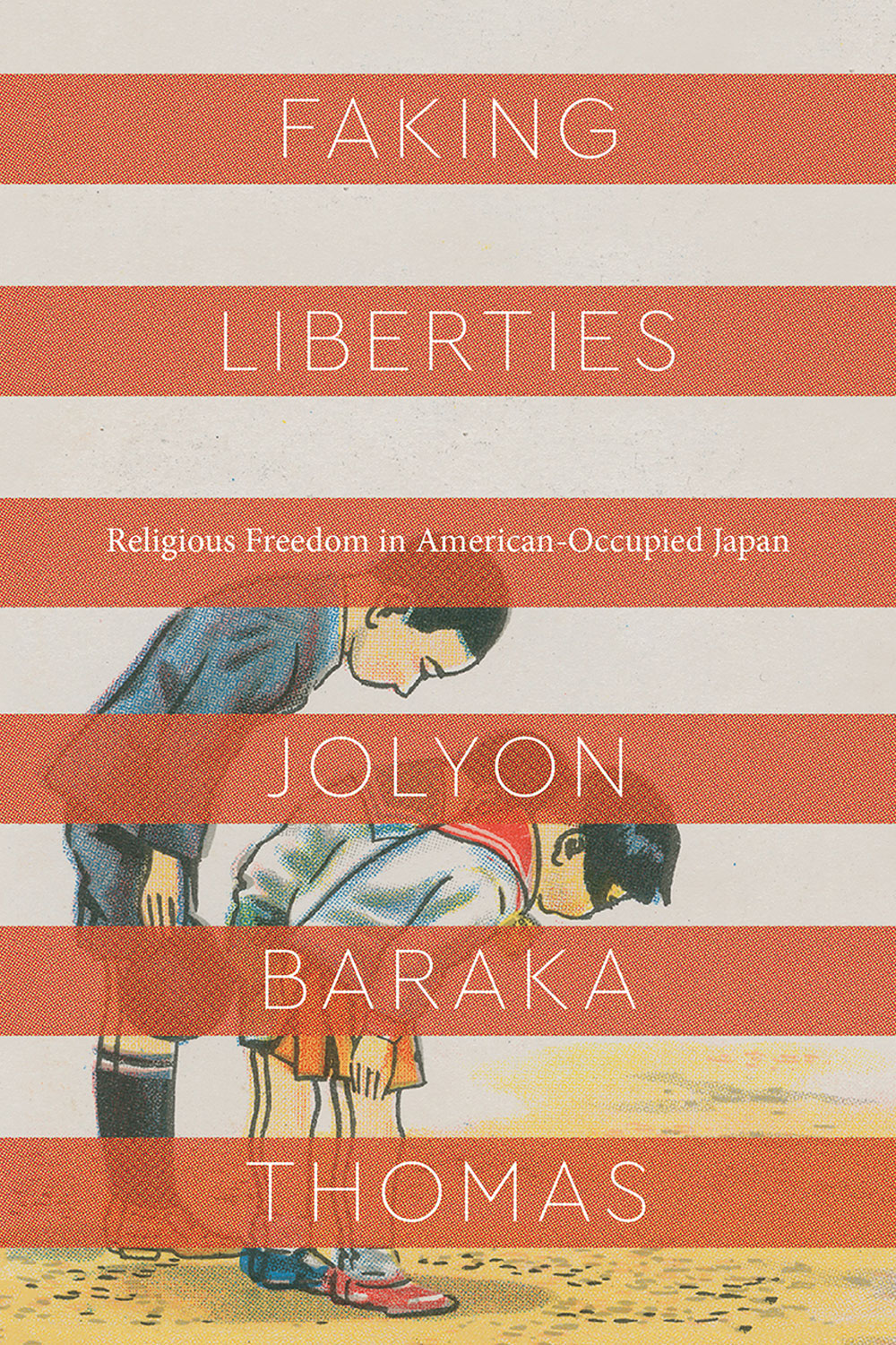OMNIA Q&A: Religious Freedom as a Tool for American Occupation
Jolyon Thomas, Associate Professor of Religious Studies, discusses his award-winning book, Faking Liberties: Religious Freedom in American-Occupied Japan.
When the United States occupied Japan after World War II, it used the idea of bringing “religious freedom” to the nation as a powerful tool to abet and justify imperialistic tendencies, according to Jolyon Thomas, Associate Professor of Religious Studies.

In his book, Faking Liberties: Religious Freedom in American-Occupied Japan, which won the 2020 American Academy of Religion Book Award for Excellence in the Study of Religion: Analytical-Descriptive Studies, Thomas analyzes pre-war Japanese law and argues that Japan and its people had a dialogue on religious freedom that preexisted American occupation.
In an OMNIA Q&A, Thomas discusses the purpose of his book, how religious freedom was used as a tool to demonize and occupy Japan, the inherently contradictory nature of freedom, and the unfinished work of securing freedoms, religious and otherwise, for all.
Why is the idea of religious freedom in American-occupied Japan fraught?
After World War II, Americans stationed in occupied Japan claimed to be bringing religious freedom to a country where it didn't exist. They described Japan's existing constitutional guarantee of religious freedom as fake and then claimed to be instituting what they called real religious freedom in its stead. What's striking to me, and what I delve into in the book, is that when the American occupiers were making such claims, they downplayed the fact that they had significant internal disagreements with one another about what real religious freedom was and they overlooked the inconvenient truth that Japan and the Japanese people had been talking about the meaning and scope of religious freedom for decades before the occupiers arrived.
What does it mean to demonize the “other” and how did that serve America’s interests?
U.S. citizens were very reluctant to enter World War II and had to be coaxed and cajoled into it. In 1941, President Roosevelt gave his “Four Freedoms” speech before the bombing of Pearl Harbor, and he talked about Americans needing to produce a lot of military industrial goods to support allies fighting overseas because that would be the American defense of freedom. When the Japanese attacked Pearl Harbor, it was very easy to take that freedom talk and turn it to the conflict with the new enemy.
Additionally, Americans had been very suspicious of Japanese immigrants for some time. This is something I write about in Chapter 3, which focuses on the experience of Japanese Americans in territorial Hawaii. That suspicion turned into outright hatred over time, which was greatly manufactured in the American media as they pushed caricatures of Japanese people. Messages would include that the Japanese have no individuality and that they are slavishly devoted to their emperor and worship him as a god. All of this was designed to not only demonize the Japanese but also to give Americans a rationale for why we fight. The message was that we have freedom and individuality, and those people don't, and the antithesis of freedom and individuality is this sort of hidebound conformity.
Your book deals with the “inherently contradictory quality of freedom.” What do you mean by inherently contradictory?
Freedom is inherently contradictory because for freedom to work, it requires constraints of some sort. I think this is best illustrated through a couple of different examples like freedom of speech. We are free to say whatever we want, but sometimes people don't like what we say. To guarantee our right to say whatever we want, sometimes the State gets involved to forcibly protect our right to free speech. We see this especially when white supremacists decide to have a scheduled rally. There's always this striking moment when there are lines of police set up to protect the white supremacists from the citizens around them who are reasonably and justifiably concerned. The police represent the State’s willingness to use violence to protect the white supremacists’ right to say deplorable things. There are other cases where somebody may make a religious freedom claim like they want to be in a plural marriage with multiple underage children and in that case, the State may also intervene saying they’re worried about the freedoms or the safety of the children. So, to protect one person's freedom, it requires the State’s willingness to use force to balance that person's freedom against the freedoms of others.
What do you hope readers most take away from your book?
The takeaway lessons of my book are that religious freedom is only as robust as the understanding of religion and freedom that people bring to that phrase, and also that there's an imperialistic tendency to the American project of religious freedom. There is this hubris that we know better than other people what freedom is and therefore, we can tell them how to do religious freedom. There's an irony built into that, which is that when you're telling people how to be free, you’re already denying them a certain amount of freedom.
I’d also add that the more powerful a phrase is, the more incumbent it is upon us to take a moment to critically pause and investigate it. The phrase “religious freedom” is so powerful and can do so much work, and it is just one example of many phrases like that in collective life. I want people to not just trust or believe that religious freedom is an unambiguous good, but to consider that religious freedom can have negative effects. This is not to say that we shouldn't celebrate or strive for it, but to recognize that the project of securing freedom for all of us is necessarily ongoing and it is never finished.



